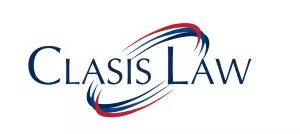A Single Judge bench of the Delhi High Court has recently, in the case of JA Entertainment Pvt Ltd vs MS Sithara Entertainment and Ors.1 held that dubbing of a movie based on assigned copyright work by another person, to whom separate rights are assigned vis-à-vis the same copyright work, does not constitute infringement.
Facts:
The Plaintiff approached Defendant No. 3, i.e., the producer of a Malayalam film 'Ayyappanum Kozhiyum' ("Film") and the predecessor of Defendant No, 4, for assignment of Hindi remake rights of the said Film. Pursuant to negotiations, the Plaintiff and Defendant No. 3 and predecessor of Defendant No. 4 executed an Assignment Agreement dated May 13, 2020 (Plaintiff's Assignment Agreement) whereby the Hindi remaking rights along with the rights to remake and dub the said Film in Hindi along with the right to add subtitles to the said Film and its Hindi remake were assigned in favour of the Plaintiff.
In March 2022, the Plaintiff came across a trailer of a Telugu Film titled 'Bheemla Nayak' dubbed in Hindi ("Suit Film"). The Plaintiff immediately enquired from Defendant No. 3 about the nature of the rights assigned to Defendant No. 1 who is the producer of the Suit Film. The Defendant No. 3 stated that only limited rights had been assigned to remake the Film in Telugu and supplied the Plaintiff with the Deed of Assignment dated March 18, 2020 executed between Defendant No. 3 and Defendant No. 1. The Plaintiff upon learning that the exploitation rights of the Suit Film had been assigned to one Goldmine Telefilms Pvt. Ltd., issued a notice to Defendant No. 1 to Cease-and-Desist from releasing the Suit Film. As Defendant No. 1 refused to comply with the requisitions of the said notice, the Plaintiff filed the present suit and subsequent interim application for ad-interim reliefs.
Submissions:
The Plaintiff submitted that Defendant nos. 3 and 4 were the original owners of the Film and thus were protected under Section 14 of the Copyright Act, 1957 ("Act"). The Plaintiff by way of the Plaintiff's Assignment Agreement had legally acquired the rights to remake the Film in Hindi and dub the Film in any language, as assigned in their favour. The Plaintiff further submitted that Defendant No. 1's Deed of Assignment dated March 18, 2020 was only to remake the movie in Telugu and subtitle it in any language and thus the Defendant No. 1's act of dubbing the Suit Film in Hindi was an infringement of the Plaintiff's copyright viz. the said Film. The Plaintiff further submitted that as only limited rights in the Film were assigned to Defendant No. 1, Defendant No. 3 remained the owner of the original work by virtue of provisions of Section 18 of the Act. It was further submitted that the Film was not a new work and that the Defendants were required to pass the test of substantial similarity as laid down in R.G. Anand vs Delux Films and Ors2.
The Defendant No. 1 submitted that by way of the Deed of Assignment dated March 18, 2020 the Defendant No. 1 had acquired copyrights in the story and for remaking and dubbing the Film into Telugu and subtitling rights into all Indian and world languages and to exploit the same in all formats and media and thus, the said assignment included the right to exploit the Suit Film into all formats including by dubbing the same. It was further submitted that the Deed of Assignment dated March 18, 2020 does not have any negative covenants restricting Defendant No. 1 from exploiting the rights in the remade film. Defendant No. 1 further submitted that by virtue of the Deed of Assignment dated March 18, 2020, it was in fact the owner of the entire bundle of rights in the remade Suit Film and that the Suit Film had a new name, different star cast and songs thus making the Suit Film a distinctive and separate work. Defendant No. 1 also stated that since the Suit Film was a separate work, they had the complete right to dub or subtitle the said Suit Film in any language.
Defendant No. 2 submitted that since the Suit Film was a completely new film, the copyrights in the said Suit Film were with the Defendant No. 1 and thus, the Defendant No. 1 had an unencumbered right to dub the Suit Film.
Analysis by the Court and Conclusion:
The Court revisited the provisions of the Act and observed that on a conjoint reading of Sections 17, 2 (d) (v) and 2 (uu) of the Act, it is clear that the author of a work is the first owner of the copyrights related thereto and in relation to a cinematograph film, the producer is the author, and thus the owner of the first copyright vis-à-vis a cinematographic film. The Court thereafter analysed the concept of dubbing in light of the expression 'communication to the public' as defined under Section 2 (ff) of the Act. The Court thereafter referred to the judgement of the Division Bench of the Madras High Court in the matter of Thiagrajan Kumararaja vs Capital Film Works (India) Pvt Ltd and Anr.3 wherein the Court had held that dubbing would fall within the ambit of the expression 'communicating to the public' and the producers/authors of the cinematograph film being the owners thereof, would inter alia have the right to both dub and subtitle their work subject to any restrictions.
The Court observed that it was not the Plaintiff's case that the Suit Film made by the Defendant No. 1 infringes the copyright of the Plaintiff and had in fact themselves accepted the fact that the Suit Film was completely new. The Court observed that the Plaintiff's case actually was that the dubbing of Suit Film into Hindi would infringe their copyrights. In order to answer this controversy, the Court revisited the Deed of Assignment dated March 18, 2020 and Plaintiff's Assignment Agreement, and observed that in the former, Defendant No. 3 had assigned the entire rights for remaking and dubbing the said Film in Telugu and subtitling it in all Indian and world languages with the power to alter, delete, add, modify the story and screenplay, renouncing all his rights in the new Telugu film produced or dubbed, whereas in the later agreement, Defendant No. 3 and predecessor to Defendant No. 4 had assigned rights to inter alia make a new cinematograph film based on the Film and the underlying works in Hindi and the right to dub the Film in Hindi or any other language with the right to dub the Hindi film.
The Court further observed that prima facie the Plaintiff had been assigned the right to remaking and dubbing the Film and inter alia included the right to make a new cinematographic film in Hindi with the right to dub the Film in Hindi or any other language and that the right to remake the film in Telugu was not assigned to the Plaintiff. Under the provisions of Section 51 of the Act, a copyright is deemed to be infringed when any person without licence from the owner or registrar or in contravention of the licence conditions, does anything which only the owner can do. The Court stated that since the rights granted to the Plaintiff was not encroached upon by Defendant Nos. 1 and 2, prima facie, there was no case of infringement. The Court further observed that the Plaintiff in light of the Deed of Assignment dated March 18, 2020 cannot have any grievance over the exploitation of the Suit Film in Hindi as the Defendant No. 1 was within his rights to do so. The Court further observed that prima facie Defendant No. 2 was the owner of the Suit Film in light of the Deed of Assignment dated March 18, 2020 and the Thiagrajan Kumararaja4 judgement and thus was fully within his right to dub the said film. The Court prima facie found that the Plaintiff did not have a cause of action, and thus vacated the previous ad-interim injunctions and disposed of the said interim application.
Footnotes
1. I.A. No. 4813 of 2022 CS (COMM) 191 of 2022
2. (1978) 4 SCC 118
3. 2017 SCC OnLine Mad 37588
4. (supra)
The content of this article is intended to provide a general guide to the subject matter. Specialist advice should be sought about your specific circumstances.

